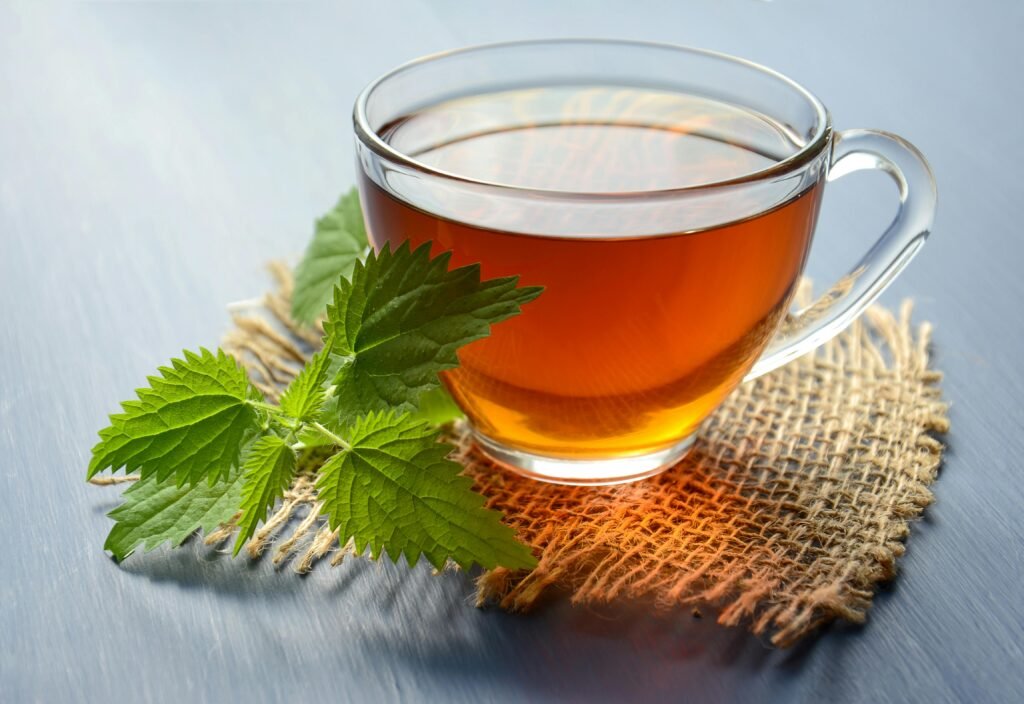Acne is a common skin condition that affects many people. It can be frustrating and impact self-esteem. A holistic approach to treating acne-prone skin looks at the whole person, not just the skin itself.
A holistic approach to acne treatment considers diet, lifestyle, and skincare together to improve overall skin health. This method aims to address the root causes of acne, not just the symptoms. By looking at your whole health, you may find better long-term results for clearer skin.
Holistic acne treatment often includes natural remedies and lifestyle changes. These can work alongside or instead of traditional acne treatments. Some options are changing your diet, managing stress, and using gentle skincare products. This approach can help you take care of your skin while also improving your overall well-being.
Understanding Acne and Its Causes
Acne is a common skin condition that affects many people. It happens when hair follicles get clogged with oil and dead skin cells. Let’s explore the main factors behind acne development.
The Role of Hormones and Sebum Production
Hormones play a big part in acne. During puberty, your body makes more androgens. These hormones cause your skin to produce more oil, called sebum.
Too much sebum can clog pores, leading to acne breakouts. Women may notice acne flare-ups before their period due to hormone changes.
Your genetics also affect how much oil your skin makes. If your parents had acne, you might be more likely to get it too.
Diet and Lifestyle Factors
What you eat can impact your skin. Some foods may make acne worse:
- High-glycemic foods (like white bread and sugary snacks)
- Dairy products
- Chocolate (for some people)
Stress can also trigger acne. When you’re stressed, your body makes more hormones that increase oil production.
Not getting enough sleep or not cleaning your face properly can worsen acne. Regular exercise may help by reducing stress and improving blood flow to your skin.
Bacterial Involvement and Inflammation
Bacteria play a role in acne too. P. acnes is a type of bacteria that lives on your skin. It feeds on the oil in your pores.
When P. acnes grows too much, it can cause inflammation. This leads to red, swollen pimples.
Your immune system reacts to the bacteria and inflammation. This can make acne worse. Some people’s immune systems react more strongly, leading to more severe acne.
Using harsh products or picking at your skin can also cause more inflammation. This can make acne last longer and leave scars.
Holistic approaches to acne focus on addressing all these factors. They aim to balance hormones, improve diet, reduce stress, and fight inflammation naturally.
Holistic Dietary Approaches to Acne
Your diet plays a big role in skin health. What you eat can affect inflammation and hormone levels, which impact acne. Let’s explore some key dietary strategies to help manage acne-prone skin.
Anti-Inflammatory and Low Glycemic Load Diets
Anti-inflammatory diets may help reduce acne. These diets focus on foods that don’t cause inflammation in your body. You might try:
- Eating more fruits and vegetables
- Choosing whole grains over refined carbs
- Adding healthy fats like olive oil and avocados
A low glycemic load diet can also help. This means eating foods that don’t cause quick spikes in blood sugar. Some options are:
- Beans and lentils
- Sweet potatoes
- Leafy greens
These foods may help balance your hormones and reduce oil production in your skin.
Dietary Supplements and Nutrients
Some nutrients may help improve your skin health. Omega-3 fatty acids can reduce inflammation. You can get these from:
- Fish like salmon and sardines
- Flaxseeds and chia seeds
- Walnuts
Zinc is another helpful nutrient for acne-prone skin. Good sources include:
- Oysters
- Pumpkin seeds
- Beef
Antioxidants can also support skin health. Try foods rich in vitamins A, C, and E. These include:
- Berries
- Bell peppers
- Almonds
Remember, everyone’s skin is different. What works for one person may not work for another. It’s best to talk to a doctor or nutritionist about the right diet for your skin.
Topical Treatments and Skincare Regimens
Taking care of acne-prone skin involves using the right products and creating a consistent routine. A good skincare regimen can help manage breakouts and improve overall skin health.
Natural Remedies and Essential Oils
Many people turn to natural options for treating acne. Tea tree oil is a popular choice due to its antibacterial properties. You can add a few drops to your moisturizer or use products that contain it.
Other helpful natural remedies include:
- Aloe vera: Soothes inflammation
- Honey: Has antibacterial effects
- Green tea: Reduces oil production
Essential oils like lavender and rosemary may also help, but always dilute them before applying to your skin. Remember to patch test any new product to avoid irritation.
Choosing the Right Skincare Products
When selecting skincare items, look for non-comedogenic products that won’t clog your pores. Cleansers with salicylic acid can help unclog pores and reduce acne.
For your skincare routine, consider:
- Gentle cleanser: Use morning and night
- Toner: Helps balance skin pH
- Treatment: Apply acne-fighting ingredients
- Moisturizer: Keep skin hydrated
Choose lightweight, oil-free moisturizers to avoid making your skin too oily. Sunscreen is also important to protect your skin and prevent dark spots from acne scars.
Lifestyle Modifications for Acne Management
Making changes to your daily routine can help manage acne-prone skin. These changes focus on reducing stress and improving your overall health habits.
Stress Management Techniques
Stress can make acne worse. Try deep breathing exercises to calm your mind. Take slow, deep breaths for 5 minutes each day. This can lower stress hormones that trigger breakouts.
Meditation is another good option. Spend 10-15 minutes daily sitting quietly and focusing on your breath. This can help you feel more relaxed and may improve your skin.
Getting enough sleep is key. Aim for 7-9 hours each night. A regular sleep schedule helps balance your hormones, which can reduce acne flare-ups.
Healthy Habits and Physical Activity
Regular exercise can help clear your skin. Try to get 30 minutes of moderate activity most days. This could be a brisk walk, swimming, or cycling. Exercise boosts blood flow, which can help your skin heal faster.
Eating a balanced diet is important too. Focus on whole foods like fruits, vegetables, and lean proteins. Avoid processed foods and sugar, which may make acne worse.
Drinking plenty of water helps flush out toxins. Aim for 8 glasses a day. This keeps your skin hydrated and may reduce oil production.
If you smoke, try to quit. Smoking can make acne worse and slow down skin healing. Talk to your doctor about quitting aids if you need help.
Complementary and Alternative Medicine
Many people turn to non-traditional methods to treat acne. These approaches can work alongside standard treatments or on their own. Let’s look at some popular options.
Herbal Medicine and Homeopathy
Herbal medicine offers natural ways to fight acne. Tea tree oil is a common choice. It can kill bacteria and reduce inflammation. You can apply it directly to pimples or mix it with your moisturizer.
Green tea is another helpful herb. It has antioxidants that may calm your skin. You can drink it or use it as a face wash.
Homeopathy uses tiny amounts of substances to treat illness. Some people find it helps with acne. Common remedies include sulfur and silica. These are often taken as small pills.
Always talk to a doctor before trying new treatments. Some herbs can interact with medicines you might be taking.
Acupuncture and Manual Therapies
Acupuncture is part of traditional Chinese medicine. It involves putting thin needles into specific points on your body. This may help balance your body’s energy and improve acne.
Some people say acupuncture reduces stress, which can trigger breakouts. It might also boost blood flow to your skin, helping it heal faster.
Manual therapies like gua sha can also be helpful. Gua sha involves scraping the skin with a tool to improve circulation. This may help clear toxins and reduce inflammation.
Facial massage is another option. It can increase blood flow and relax your facial muscles. This might help prevent clogged pores and reduce stress-related breakouts.
Remember, these methods work differently for everyone. What helps one person might not work for another. It’s best to try things slowly and see what works for you.
Frequently Asked Questions
Many people have questions about treating acne-prone skin using holistic methods. These questions cover diet, supplements, herbal remedies, stress management, exercise, and skincare routines. Let’s explore some common queries and their answers.
What dietary changes can help in managing acne-prone skin?
Changing your diet can have a big impact on your skin health. Eating a balanced diet with lots of fruits and vegetables may help reduce acne. Try to cut back on sugar and processed foods. Some people find that dairy products make their acne worse. You might want to try removing dairy from your diet for a few weeks to see if it helps.
Drinking plenty of water is also important. It helps flush out toxins from your body and keeps your skin hydrated.
Which vitamins and supplements are known to be effective for acne-prone skin?
Some vitamins and supplements may help improve acne-prone skin. Zinc is known to reduce inflammation and kill acne-causing bacteria. Omega-3 fatty acids, found in fish oil supplements, can help reduce inflammation in your body.
Vitamin A and vitamin D are also good for skin health. But always talk to your doctor before starting any new supplements. They can help you decide what’s best for your specific needs.
Can herbal remedies have a positive impact on acne, and what are the most recommended?
Herbal remedies can be helpful for some people with acne-prone skin. Tea tree oil is a popular choice. It has antibacterial properties that may help fight acne. Green tea, applied topically or drunk as a beverage, may also help due to its antioxidant properties.
Aloe vera is another herb that might help soothe inflamed skin. But remember, even natural remedies can cause side effects. It’s best to do a patch test before using any new product on your face.
In what ways can stress management techniques improve acne-prone skin?
Stress can make acne worse. Managing stress through techniques like meditation, yoga, or deep breathing exercises may help improve your skin. These practices can lower stress hormones in your body, which may reduce inflammation and acne breakouts.
Getting enough sleep is also important for managing stress and keeping your skin healthy. Aim for 7-9 hours of sleep each night.
How can regular exercise contribute to the treatment of acne-prone skin?
Exercise can be good for your skin in several ways. It improves blood circulation, which helps nourish skin cells and keep them healthy. Exercise also helps reduce stress, which can contribute to acne.
When you exercise, you sweat, which can help clear out your pores. Just be sure to wash your face after working out to remove sweat and bacteria.
What are the best practices for skincare routines in acne prevention and management?
A good skincare routine is key for managing acne-prone skin. Use gentle, non-comedogenic products that won’t clog your pores. Wash your face twice a day with a mild cleanser. Don’t scrub too hard, as this can irritate your skin.
Use a light, oil-free moisturizer to keep your skin hydrated. If you wear makeup, make sure to remove it completely before bed. And don’t forget to clean your phone screen and pillowcase regularly, as these can harbor bacteria that may cause breakouts.





